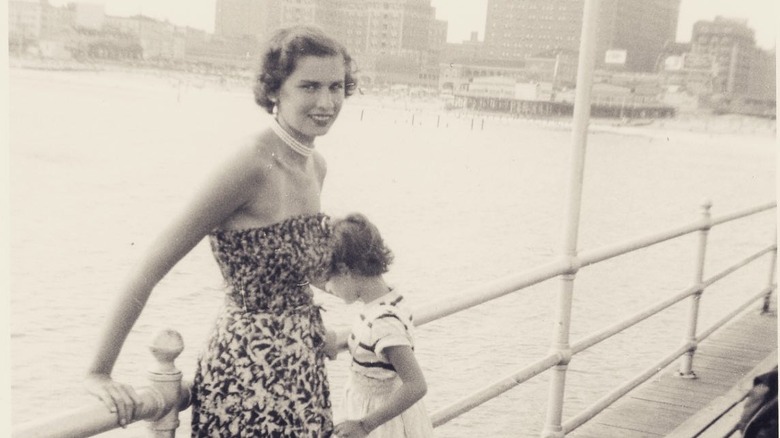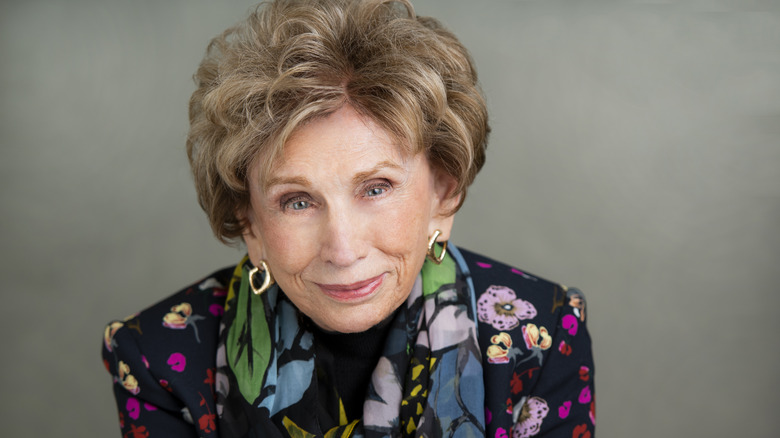Dr. Edith Eger On Breaking Free From A Traumatic Past - Exclusive
This article contains discussion of mental health and the Holocaust.
According to the National Institutes of Health, experiencing trauma of any kind can have a massive impact on the body and the brain. Trauma survivors often have nightmares, flashbacks to the event, depression, anxiety, and post-traumatic stress disorder. They may also experience physical symptoms like gastrointestinal disorders, neurological respiratory, cardiovascular, and dermatological problems, and chronic pain.
Healing from trauma, physically and mentally, can be a complex and draining process, but clinical psychologist Dr. Edith Eger says the work is worth it. She knows from personal experience.
Dr. Eger is a Holocaust survivor. At 16 years old, she was taken to Auschwitz with her parents and two sisters. Though she and her sisters managed to escape, her parents did not. Like many trauma survivors, Dr. Eger tried to ignore the horrors she'd been through, as she told The Atlantic. However, it didn't work. She had horrible nightmares and flashbacks. She regularly retreated to her bathroom to cry so her daughters wouldn't see her pain. But they saw it anyway, as did everyone around her.
She knew that she couldn't continue living around her traumatic past, so she made the decision to heal. In an exclusive interview with Health Digest, Dr. Eger shared how she finally broke free from her traumatic past and how she helps others do the same.
Trapped in the 'mental prison'
Though she was rescued from Auschwitz in 1945, Dr. Edith Eger spent decades after that in a different kind of prison.
"I am here to tell you that the worst prison is not the one the Nazis put me in," she said. "The worst prison is the one I built for myself in my mind."
She explained that her mind kept dragging her back to her experiences in Auschwitz, refusing to allow her to be free of her trauma. Because she stayed trapped in her "mental prison," she didn't believe that healing was possible. But when she began to study psychology, she discovered that her own belief that healing was impossible was keeping her from healing.
Dr. Eger added this is a common experience among trauma survivors.
"Although our lives have probably been very different, perhaps you know what I mean," she said. "Many of us experience feeling trapped in our minds ... In my work, I've discovered that while our imprisoning beliefs show up and play out in unique ways, there are some common mental prisons that contribute to suffering. I have dedicated my life to helping others escape this mental prison by realizing that the key is already in their pocket."
Finding freedom
Dr. Edith Eger emphasized that freedom from the pain of trauma is absolutely possible. But finding freedom is an active, not a passive, process.
"Freedom comes with responsibility," she stated. "To be responsible for our lives, to take a risk to step out of our mental prisons."
In her work as a clinical psychologist, Dr. Eger has guided countless people through the work necessary to break free from their mental prisons. Now, she's bringing that work to a wider audience with an online course.
"We gently guide people in the course to explore their memories, their feelings, and their hopes to discover who they truly are and to find the strength to step into that life," she explained. "It takes practice and time. Self-love is self-care, it is not narcissistic, and I hope that my course can help you discover that peace and love within yourself."
The techniques Dr. Eger implements in the course have been refined over decades of work with trauma survivors and her own trauma work. She gives participants "practical, direct experience for reframing their past and unlocking their potential" so they can find freedom from their pasts.
You can sign up for Dr. Eger's course here, and for the latest news and resources, please follow Dr. Eger's Instagram.



